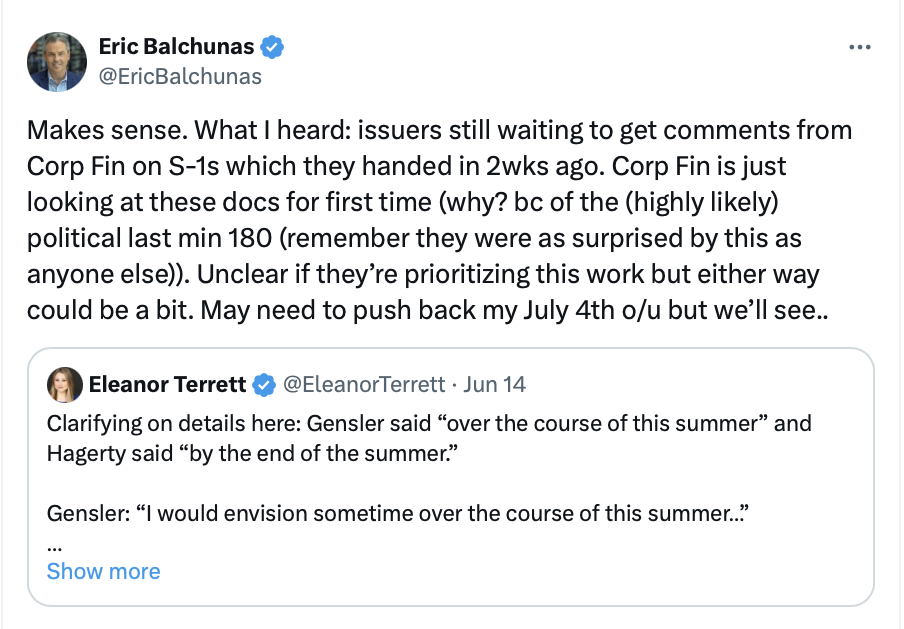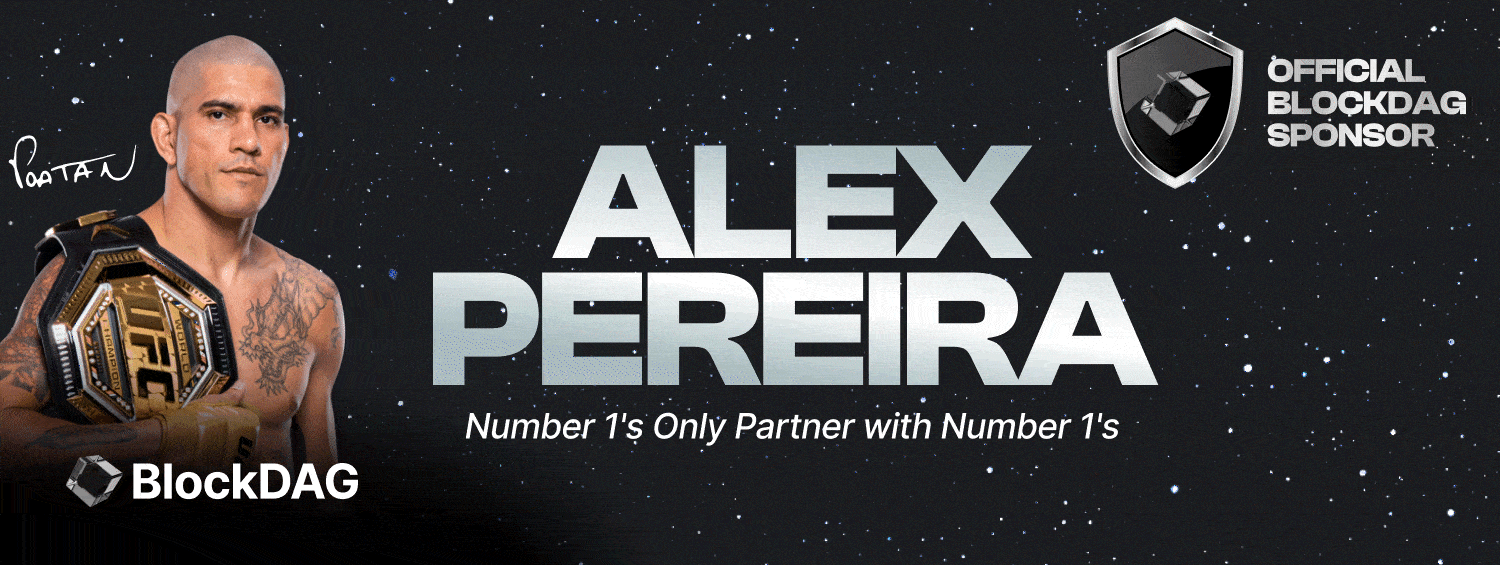
Bloomberg ETF analyst Eric Balchunas says his “best guess as of now” is that spot Ether ETFs will begin trading in the United States before July 2.
Spot Ethereum exchange-traded funds (ETF) could potentially begin trading by July 2, according to Bloomberg ETF analyst Eric Balchunas.
“We are moving up our over/under date for the launch of spot Ether ETF to July 2nd,” Balchunas wrote in a June 15 post on X, noting that the United States Securities and Exchange Commission (SEC) staff comments on the ETF applicants S-1 applications were “pretty light, nothing major,” and asked for them back within the week.
“Decent chance they work to declare them effective the next week and get it off their plate before the holiday weekend. Anything is possible but this is our best guess as of now,” he added.
The comments seem to be a turnaround in confidence from the day before, when Balchunas claimed that Ether ETF applicants were still waiting for feedback from the Division of Corporation Finance — a division of the SEC that oversees firms disclosures — and he was deciding whether to push back his July 4 prediction.

On May 23, the SEC approved eight 19b-4 filings to list spot Ether ETFs on various U.S. exchanges, but they can’t start trading until they have the required S-1 registration statement approvals.
SEC Chair Gary Gensler provided a broader timeframe for when spot Ether ETFs might begin trading, indicating that it could happen within the next three months, by the end of September.
However, just a week earlier, Gensler indicated that the speed of Ether ETF approvals would rely on how quickly issuers could address comments from the SEC.
While some traders are hopeful that Ether’s price could mirror Bitcoin’s chart movements following ETF approval on January 11, which surged to record highs of $73,679 by March 13, not everyone has the same confidence.
On June 3, Stephen Richardson, managing director of financial markets at Fireblocks, argued that spot Ether ETFs won’t see the same day-one inflow as spot Bitcoin ETFs did, as the asset’s use cases are far more difficult to value.
“What’s missing is widespread consensus that effectively evaluates the utility or utilization rate of the Ethereum blockchain.”


























